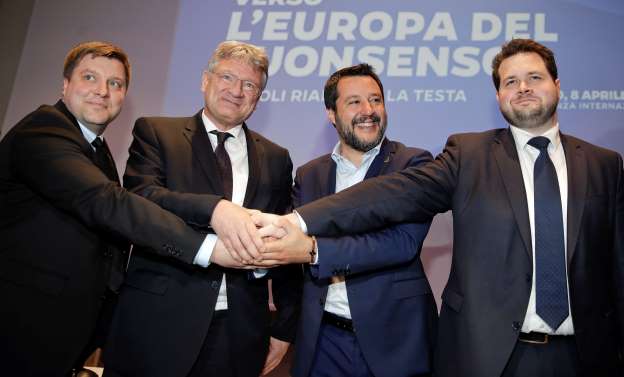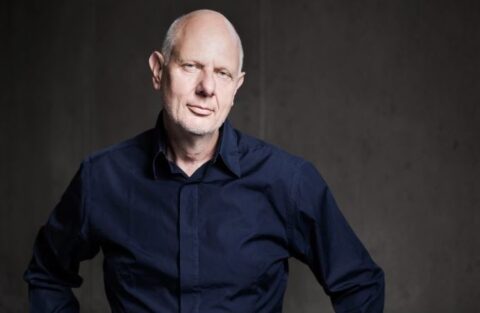A few days ago, Italy’s National Populist Interior Minister and de-facto leader Matteo Salvini made several new additions to his expanding European Parliament alliance, announcing that conservatives, nationalists, and populists from Germany, Denmark, and Finland will join Europe of Nations and Freedom (ENF) voting bloc.
The National Populist ‘supergroup’ which will be led by the Italian deputy prime minister, now also comprises Alternative for Germany (AfD), the Danish People’s Party, and the True Finns party. According to a report by Il Giornale, Salvini met with key players from all three parties earlier in the week on Monday in the northern Italian city of Milan.
These most recent additions to the populist voting bloc come after the Italian deputy prime minister had already secured the partnerships with France’s National Rally (RN) led by Marine Le Pen and Austria’s Freedom Party (FPÖ).
Salvini declared that this new collection of National Populists would focus all of their energy on achieving the goal of forming what he called a ‘new Europe’. He also charged EU globalist ‘bureaucrats and do-gooders’ of ‘burying the European dream’.
Ultimately ending mass illegal immigration flowing into the European continent from the Middle East and North Africa is one of the primary pillars of the new group. Each and every party who is a part of the coalition already has anti-mass immigration policies at the forefront of their party’s manifestos.
The existential threat of radical Islamic terror was also stressed during the conference held in Milian, with Salvini stating that “the danger for Europe does not come from the past, but from Islamic terrorism.
Salvini also delivered his position on the European Union’s future relationship with Turkey, saying that Turkey ‘will never be in Europe’.
Peter Kofod, the Danish People’s Party’s chief candidate for the European Parliament had the following to say regarding the summit of conservatives, nationalists, and populists: “We have been thinking a lot about forming a group that more closely unites some of the common interests of national conservative parties… The intention is that after the election, we will start negotiations with a view to forming a new, large group of parties that are similar to us.”
Kofod added, “We want to fight the current EU federalism. EU co-operation can move two ways: There is Macron’s path that goes towards a federal superstate with a social union, common defenses, etc. And then there is the Europe of nations that is about securing the influence and interests of the nation states.”
It’s still unclear as to whether Hungary’s Viktor Orbán, who has been suspended from the center-right European People’s Party (EPP) voting bloc, will end up joining the National Populist supergroup. In the past, Orbán hasn’t been shy in expressing his adoration for Matteo Salvini – referring to him as ‘his personal hero’ for his work on reducing mass illegal immigration.
The EU parliament elections are set to take place on May 23rd through the 26th. Leaders throughout the European Union have described it as a historic election that will decide the fate of Europe.




